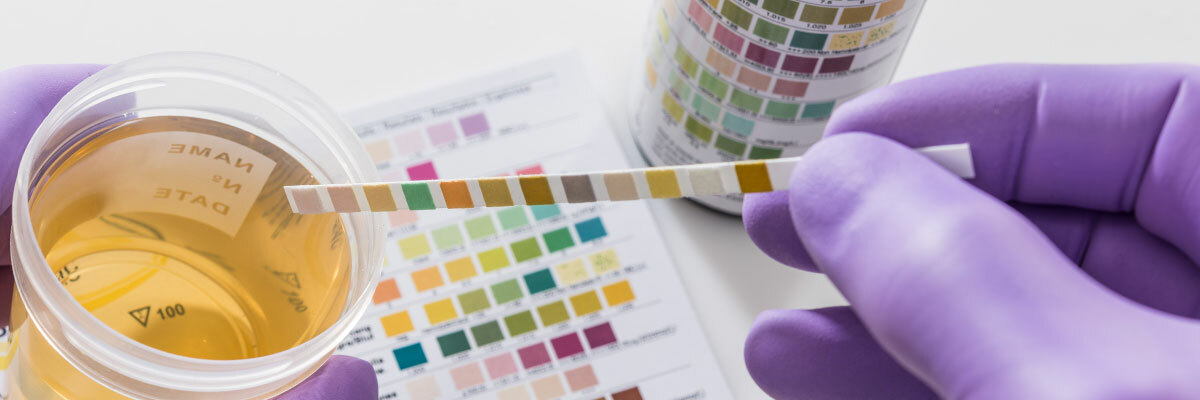As marijuana legalization gains momentum across the United States, the topic of workplace drug testing has become increasingly relevant. With some employers considering the removal of marijuana from their drug testing panels, it's essential to examine the implications of this decision.
Marijuana laws in the United States are complex, with states adopting different stances on its legality. While some states have legalized it for recreational use, others have only approved it for medical purposes. Despite these varying state laws, marijuana remains a Schedule I controlled substance under federal law, and multiple states have “safety-sensitive” carve-outs that allow for testing.
Employers in DOT-regulated industries, such as transportation, aviation, or rail, are also federally mandated and required to comply with a regulated drug testing panel, which includes marijuana. Not adhering to these regulations could lead to fines, legal penalties, and loss of contracts. Additionally, by removing marijuana from drug testing panels, employers may increase their legal risk and could be held liable for accidents while on the job resulting from marijuana impairment.
Benefits of Keeping Marijuana on Your Drug Testing Panel
Keeping marijuana testing as part of a drug test panel can offer several benefits to employers, including:
- Maintain safety in the workplace
- Reduced risks and costs associated with substance abuse
- Maintain compliance with federally mandated policies
- Create a more comprehensive drug testing policy
- Maintain company reputation
Impact on Workplace Safety
Employers have a responsibility to prioritize their workforce's well-being, including taking necessary measures to prevent accidents and injuries caused by drug impairment. Marijuana use has been associated with impaired reaction time, reduced coordination, and poor decision-making, which can be particularly detrimental in safety-sensitive industries. Maintaining a drug testing panel that includes marijuana is an effective preventive measure in ensuring safety in your workplace.
In a 2021 survey conducted by the Current Consulting Group, results showed that 47.6% of employers were concerned about the legalization of marijuana’s impact on safety in the workplace, while 32.2% were at least a little concerned about safety. That accounts for almost 80% who are dealing with problems related to employees being at work under the influence of marijuana, often regularly.
The average employee across all industries with an untreated substance abuse disorder costs their employer an average of $7,000 per year in excess healthcare expenses, absenteeism, and turnover costs. Utilizing DISA's drug testing calculator, employers can determine the potential risks and costs associated with a substance-abusing employee in the safety-sensitive industry. Additionally, by continuing to test for marijuana, employers can identify and address potential substance abuse issues early on, mitigating the risks associated with impaired employees.
Why Are Some Companies Removing Marijuana?
Some argue that removing marijuana from drug testing panels is necessary to protect employee privacy and prevent discrimination against those who use marijuana legally or for medical purposes. While these concerns are valid, they should not outweigh the importance of workplace safety and the employer's responsibility to maintain a drug-free environment.
Employers can implement a clear and concise drug testing program that, partnered with a Medical Disclosure Policy, will also help protect your company from legal drug use. Providing clear guidelines on the consequences of a positive marijuana test will ensure these policies are applied consistently and fairly.
Impairment on the job and substance abuse can lead to:
- Higher insurance premiums
- Employee turnover
- Absenteeism
- An increase in accidents
- Workers’ compensation claims
- Errors
- Decreased employee productivity
Regardless of the industry, companies can understand the impact of impairment in the workplace. With a drug testing program, employers can define company policies and ensure that employees abide by them.
Moreover, educating employees on the potential risks of marijuana use, particularly in the workplace, can create a safer and more informed work environment. By fostering open dialogue and providing resources, employers can strike a balance between respecting employee rights and prioritizing safety.
Reasonable suspicion training can help companies maintain a safe working environment by ensuring that your Designated Employee Representative (DER), along with other managerial staff, are fully prepared to address drug abuse and use in the workplace. When paired with other drug testing methodologies, proper documentation, and properly trained supervisors, reasonable suspicion drug testing will strengthen a company’s drug testing policy.
A Similar Situation – Opioid Abuse
Employers should also pay attention to the ongoing fentanyl epidemic and consider not removing marijuana but adding fentanyl to their panel. More than 107,000 people died of overdoses in the U.S. in 2021— more people than in any other year in history, an increase of 65% from 2019.
Opioid abuse continues to remain on the rise, costing the U.S. more than a trillion dollars since 2001. According to a 2022 DISA Owner Survey, 69% of owners were not aware that fentanyl is not included under the opioid family on a standard drug testing panel. It’s a staggering metric that all employers should be concerned about and use each of the tools at their disposal to combat (especially deterrence).
Related Articles:
About DISA Global Solutions
Founded in 1986, DISA is the industry-leading provider of employee screening and compliance services. Headquartered in Houston, with more than 35 offices throughout the U.S. and Canada, DISA’s comprehensive scope of services includes drug and alcohol testing, background screening, occupational health, and transportation compliance. DISA assists employers in making informed staffing decisions while building a culture of safety in their workplace.
